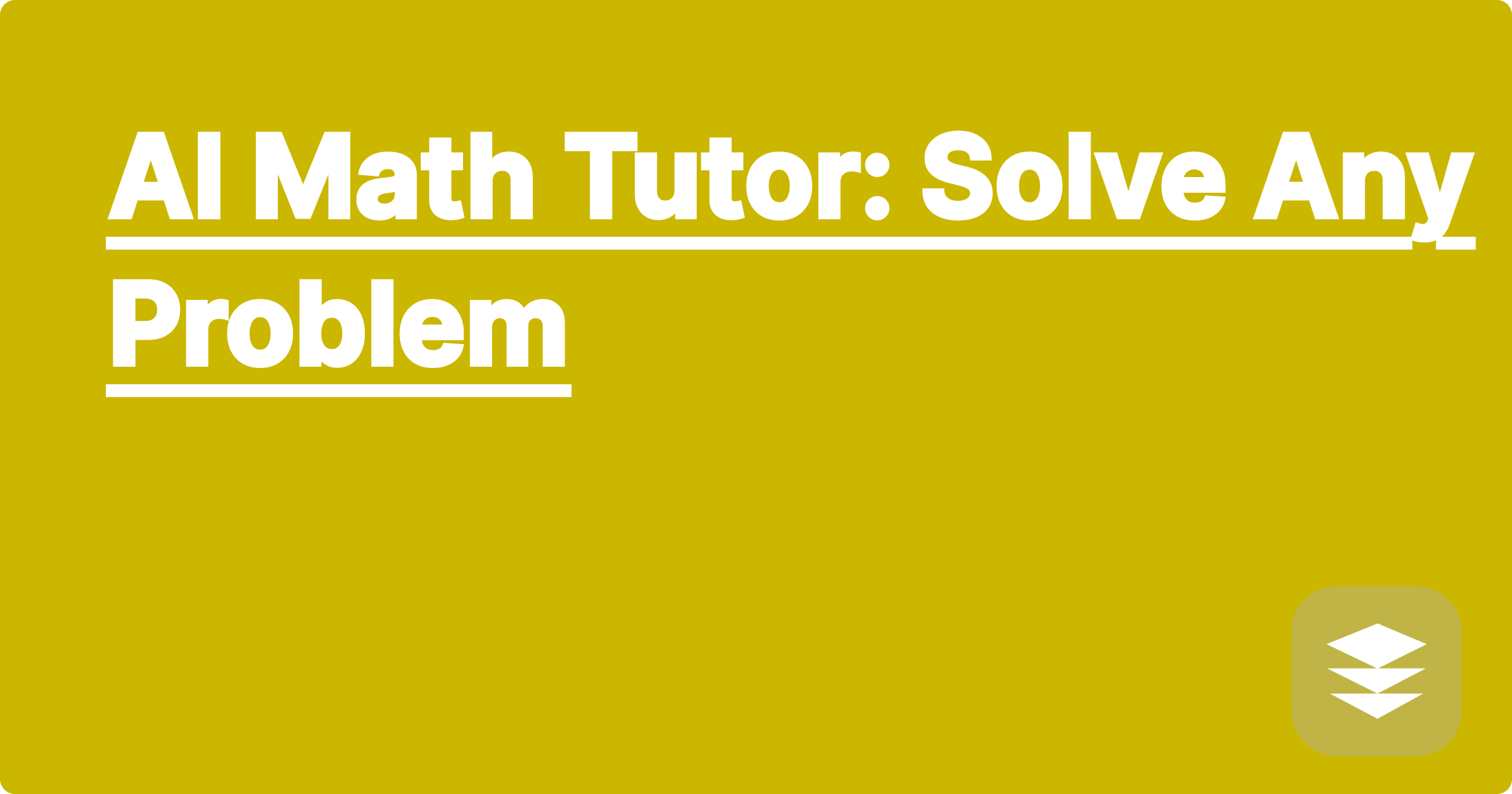
STEM fields often present complex mathematical challenges that can be daunting for students and researchers alike. The sheer volume of information, intricate formulas, and abstract concepts can create significant hurdles in understanding and problem-solving. Artificial intelligence offers a promising new approach to tackling these challenges, providing powerful tools that can assist with everything from basic algebra to advanced calculus and beyond. AI-powered math tutors can personalize the learning experience, provide step-by-step guidance, and offer instant feedback, potentially revolutionizing how we approach STEM education and research.
This emerging technology has profound implications for STEM students and researchers. It can significantly reduce the time and effort required to grasp complex mathematical concepts, allowing for deeper exploration of subject matter. AI tutors can offer personalized support tailored to individual learning styles and paces, addressing specific areas of weakness and promoting a stronger foundational understanding. For researchers, these tools can automate tedious calculations, freeing up valuable time for more creative and strategic thinking. Ultimately, AI-powered math tutors can empower STEM learners to reach their full potential, fostering innovation and accelerating progress across scientific disciplines.
Mathematics forms the bedrock of STEM disciplines. From physics and engineering to computer science and data analysis, a strong mathematical foundation is essential for success. However, many students struggle with the abstract nature of mathematical concepts, finding it difficult to bridge the gap between theory and application. Traditional teaching methods often fall short in providing the individualized support needed to address diverse learning styles and overcome specific challenges. Furthermore, the rapid pace of technological advancements demands a continuous expansion of mathematical knowledge, creating a constant need for effective and efficient learning tools. Researchers, too, face the challenge of navigating increasingly complex mathematical models and computations, requiring powerful tools to streamline their work and facilitate deeper analysis.
AI tools like ChatGPT, Claude, and Wolfram Alpha offer a novel approach to solving mathematical problems and enhancing learning. These platforms leverage the power of natural language processing and sophisticated algorithms to provide step-by-step solutions, explain complex concepts, and even generate practice problems. ChatGPT and Claude can be particularly useful for understanding the underlying logic behind a problem, offering explanations in conversational language and adapting to the user's level of understanding. Wolfram Alpha excels in symbolic computation and data analysis, providing precise solutions to complex equations and generating visualizations that aid in comprehension. By combining these tools strategically, STEM learners can gain a deeper understanding of mathematical concepts and improve their problem-solving skills.
Using these AI tools is remarkably straightforward. First, clearly define the problem you want to solve. This might involve writing out the equation, describing the problem scenario in words, or providing relevant data. Next, select the appropriate AI tool based on the nature of the problem. For conceptual understanding and step-by-step explanations, ChatGPT or Claude are excellent choices. For precise calculations and symbolic manipulation, Wolfram Alpha is often the preferred option. Input the problem into the chosen tool, ensuring clarity and accuracy. Review the output carefully, paying attention to the steps involved and the underlying logic. If the solution is unclear, rephrase the problem or ask clarifying questions within the AI interface. Finally, try applying the learned concepts to similar problems to reinforce your understanding.
Consider the problem of finding the derivative of the function f(x) = x^3 + 2x^2 - 5x + 1. Using Wolfram Alpha, simply input "derivative of x^3 + 2x^2 - 5x + 1". The output will instantly provide the derivative: f'(x) = 3x^2 + 4x - 5. Wolfram Alpha can also handle more complex problems, such as integrals, differential equations, and matrix operations. For a conceptual understanding of derivatives, ChatGPT or Claude can be used to explain the concept of instantaneous rate of change and provide step-by-step examples of how to apply the power rule and other differentiation techniques. These tools can also be used to solve real-world problems, such as optimizing a manufacturing process or analyzing statistical data.
Another example is solving a system of linear equations. Input the equations into Wolfram Alpha, and it will provide the solutions for the variables. ChatGPT or Claude can be used to explain different methods for solving systems of equations, such as substitution and elimination, and provide step-by-step guidance through the process. These examples illustrate the versatility and power of AI tools in tackling a wide range of mathematical challenges.
To maximize the benefits of AI tools in STEM education and research, several strategies are crucial. First, develop a strong foundation in fundamental mathematical concepts. AI tools should be used to enhance understanding, not as a substitute for basic knowledge. Second, actively engage with the AI tools by asking clarifying questions and exploring different approaches to problem-solving. Third, practice regularly and apply the learned concepts to real-world scenarios. Fourth, be mindful of the limitations of AI tools. They are powerful aids but not infallible. Always double-check results and critically evaluate the output. Finally, embrace a growth mindset and view challenges as opportunities for learning and improvement.
By combining the power of AI with a proactive and engaged learning approach, STEM students and researchers can unlock their full potential and achieve remarkable success. The future of STEM learning is here, and it is powered by artificial intelligence. Explore these tools, experiment with different approaches, and discover how AI can transform your understanding of mathematics and propel your academic journey forward.
AI Lab Assistant: Boost Efficiency
AI Math Tutor: Solve Any Problem
AI Research Tool: Data Insights